Margaret Fahnestock
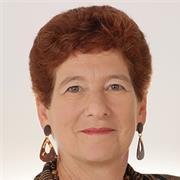
Margaret Fahnestock is a molecular neurobiologist at McMaster University. She is a professor in the Department of Psychiatry and Behavioural Neurosciences, as well as an Associate Member of the Department of Biology and a member of the Medical Sciences graduate program. Margaret has been working with McMaster since 1991, when she joined the Department of Biomedical Sciences. Her research is focused on neurotrophic factors, specifically understanding how neurotrophin gene expression, regulation, signaling and trafficking are dysregulated in Alzheimer’s disease and autism. Currently, her research is focused on the molecular mechanisms of the benefits of exercise and diet on cognition. Margaret has done extensive research on neurological disorders during her time at McMaster and continues to work as a highly respected researcher in the field of neuroscience.
Lawrence Steinman
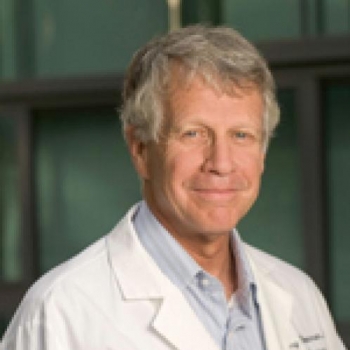
Dr. Lawrence Steinman is a professor of Neurology and Neurological Sciences, Pediatrics, and Genetics. He also served as the Chair of the Stanford University Interdepartmental Program in Immunology from 2003-2011. Dr. Steinman’s research focuses on what provokes relapses and remission in multiple sclerosis (MS), the nature of the molecules that serve as a brake on the brain inflmmation, and the quest for a tolerizing vaccine for autoimmune diseases like type 1 diabetes and neuromyelitis optica. He has developed two antigen specific therapies, using DNA vaccines, for MS and type 1 diabetes. He was senior author on the seminal 1992 Nature article that reported the key role of a particular integrin in brain inflammation. This research led to the development of the drug Tysabri, which is used to treat patients with MS and Crohn’s disease. Dr. Steinman received his BA from Dartmouth College and his MD from Harvard University. He was a post-doctoral fellow in chemical immunology fellow at the Weizmann Institute of Science in Israel. Dr. Steinman returned to Stanford University Hospital as a resident in pediatric and adult neurology and then joined the faculty at Stanford in 1980. Dr. Steinman has received numerous honors and awards, including the John M. Dystel Prize from the American Academy of Neurology and the National MS Society for his research on MS, and the Charcot Prize for Lifetime Achievement in MS research. He has twice been awarded the Senator Jacob Javits Neuroscience Investigator Award by the National Institute of Neurological Diseases and Stroke. Dr. Steinman is a member of the National Academy of Sciences and the National Academy of Medicine, formerly called the Institute of Medicine. Dr. Steinman holds a number of patents in the areas of immunology, and for therapies of Huntington Disease, type 1 diabetes and MS. He cofounded Neurocrine Biosciences, Bayhill Therapeutics now named Tolerion, Nuon Therapeutics, Transparency Life Sciences and Atreca.
Giuseppe Umana
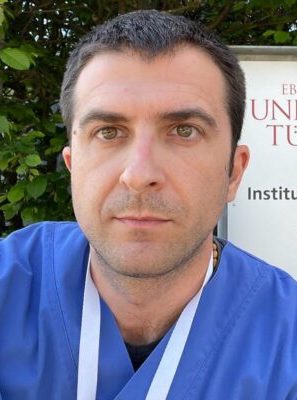
Giuseppe Umana practices in Rome, Italy. Umana is highly rated in 15 conditions, according to our data. His top areas of expertise are Meningioma, Epidural Hematoma, Subdural Hematoma, Laminectomy, and Gamma Knife Radiosurgery. Clinical research consists of overseeing clinical studies of patients undergoing new treatments and therapies, and publishing articles in peer reviewed medical journals. Experts who actively participate in clinical research are generally at the forefront of the fields and aware of the most up-to-date advances in treatments for their patients. His clinical research consists of co-authoring 137 peer reviewed articles in the past 15 years. -Neurosurgeon-Italian Medical license-British Medical license, GMC full registration with specialist registration N.7590139– Associate Fellow of the American College of Surgeons– DataFlow certification, PSV report– PhD maxillo-facial surgery 2018-2021 PhD IN INNOVATIVE TECHNOLOGIES IN DISEASES OF THE SKELETON, SKIN AND ORAL-SKELETON-FACIAL DISTRICT-Second Level – University Master – Cadaver lab – Craniocervical junction and complex spinal surgery, Catholic University of Rome, Italy– Second Level – University Master- “Advanced techniques of minimally invasive spinal surgery”, La Sapienza University of Rome, Italy– Apoqlar advisory board member, mixed reality applied in neurosurgery https://vsi.health/en/advisory-board/– Founding member & south Europe Regional Committee at The Holomedicine Association https://holomedicine-association.org/founding-members– Augmented reality based neuronavigation beta tester
David Baron, DO, MSEd
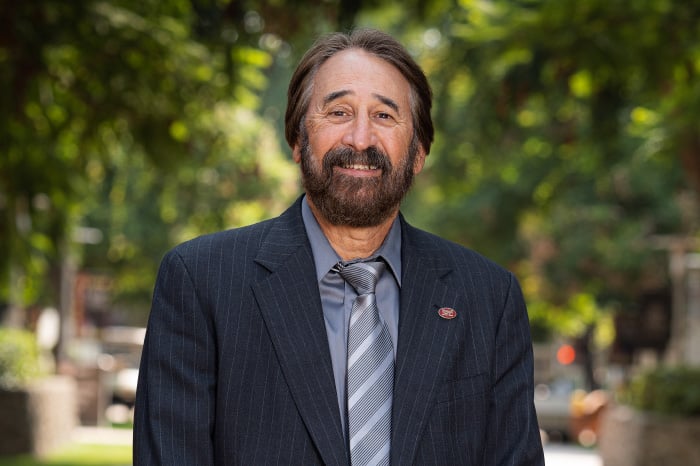
Currently working as a tenured Professor at Western University of Health Sciences, research Professor at Claremont Graduate University. David Baron, DO, MSEd, is Senior Vice President and Provost of the Western University of Health Sciences and serves as Chief Academic Officer of the university. He is responsible for academic, accreditation, and budgetary affairs. Dr. Baron joined the university in May 2018 after serving for eight years in roles within the Department of Psychiatry at the Keck School of Medicine, including Vice Dean for Global Health, Professor of Psychiatry and Neurosurgery, Vice Chair of the Department, and Chief of Service at Keck-USC Hospital. He received his DO degree from the Philadelphia College of Osteopathic Medicine (PCOM) and a Master of Science in Education from the University of Southern California (USC). He is the former Deputy Clinical Director of the National Institute of Mental Health (NIMH), former President of the American College of Neuropsychiatry and the Group for the Advancement of Psychiatry, and chaired the Department of Psychiatry at Temple University School of Medicine from 1998-2010. Dr. Baron was named a National Fulbright scholar in 2017-18 and conducted his research as Distinguished Chair in Brain Research at the University of Calgary. He also is the recipient of a Fulbright Specialist Award.
Qifa Zhou
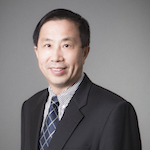
Qifa Zhou received his Ph. D. degree from the Department of Electronic Materials and Engineering of Xi’an Jiaotong University, China in 1993. He is currently Professor in the Department of Ophthalmology in the USC Keck School of Medicine as well as the Department of Biomedical Engineering at the University of Southern California. He is also one of the leading principle investigators at the NIH Resource Center on Medical Transducer Technology. Dr. Zhou has published more than 200 peer-reviewed articles in journals including Nature Medicine, Scientific Reports and Progress in Materials Science, and is a fellow of the International Society for Optics and Photonics (SPIE) and the American Institute for Medical and Biological Engineering (AIMBE). He is a member of the Technical Program Committee of the IEEE International Ultrasonics Symposium, and is an Associate Editor of the IEEE Transactions on Ultrasonics, Ferroelectrics, and Frequency Control. He was the co-author of a paper that received the best student paper competition award at the 2010 IEEE IUS conference and the best poster paper in photoacoustics plus ultrasound at the 2015 SPIE Photonics West conference.
Lei Li
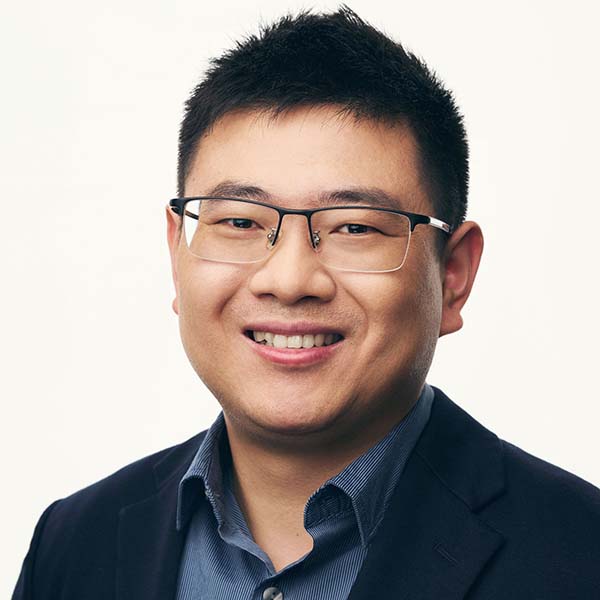
Dr. Lei Li is an incoming Assistant Professor of Electrical Computer Engineering at Rice University. His primary research interest is to build next-generation medical imaging devices to better understand the brain and more clearly perceive disease states. He has developed advanced photoacoustic computed tomography (PACT)—an non-invasive imaging modality that combines light and sound for deep-tissue imaging—to visualize wholebody dynamics, map whole-brain functional connectivity, and diagnose human breast cancer. He has developed a PACT-guided microrobotic system to navigate and control microrobots inside the body for drug delivery. He has also integrated photoswitchable proteins with PACT to monitor tumor metastasis and visualize intratumor protein interactions. Pushing the benchtop photoacoustic system toward wearable devices, he introduced ergodicity into PACT and developed a high-throughput imaging system with significantly reduced size and complexity, promising wearable applications. Dr. Li obtained his Ph.D. from the Department of Electrical Engineering at California Institute of Technology (Caltech) in 2019. He then continued his research at Caltech as a postdoctoral scholar in the Department of Medical Engineering. He will join Rice in Jan 2023 as part of the Rice Digital Health Initiative.
Eric Kandel
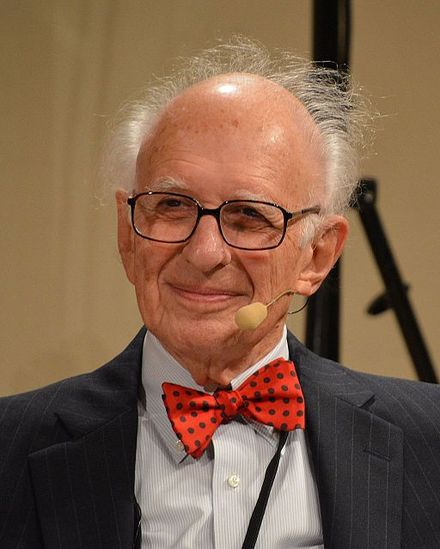
Eric Richard Kandel (German: [ˈkandəl]; born Erich Richard Kandel,[citation needed] November 7, 1929[2]) is an Austrian-born American[2] medical doctor who specialized in psychiatry, a neuroscientist and a professor of biochemistry and biophysics at the College of Physicians and Surgeons at Columbia University. He was a recipient of the 2000 Nobel Prize in Physiology or Medicine for his research on the physiological basis of memory storage in neurons. He shared the prize with Arvid Carlsson and Paul Greengard. He is a Senior Investigator in the Howard Hughes Medical Institute. He was also the founding director of the Center for Neurobiology and Behavior, which is now the Department of Neuroscience at Columbia University. He currently serves on the Scientific Council of the Brain & Behavior Research Foundation. Kandel’s popularized account chronicling his life and research, In Search of Memory: The Emergence of a New Science of Mind,[3] was awarded the 2006 Los Angeles Times Book Prize for Science and Technology.
Babak Kateb
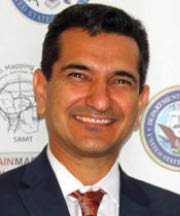
Babak Kateb, MD, Ph.D. (h.c.), is a neuroscientist and serial neurotech entrepreneur with more than 22 years of research experience. His research has focused on introducing advanced diagnostics and therapeutics into clinical neuroscience to rapidly identify and introduce game-changing technologies to treat neurological disorders such as brain cancer, Alzheimer’s disease, Parkinson’s disease, and other brain and spinal conditions. He did his educational training at TUSOM, USC. His research fellowship was at the USC-keck School of Medicine, Department of Neurosurgery. He also studied VLSI system design at the USC Department of Electrical Engineering at the Ming Hsieh Institute; he has an Honorary Ph.D. from Uskudar University, Istanbul, Turkey. Babak established the Society for Brain Mapping and Therapeutics (SBMT) while doing his research fellowship 22 years ago at USC. He is the founding Chairman of the board of directors & CEO of the Society for Brain Mapping and Therapeutics (SBMT). He is the President and Scientific Director of the World Brain Mapping Foundation, the National Center for Nano-Bio-Electronics, and the Brain Technology and Innovation Park (BTIP), focused on integrating nanotechnology, cellular therapeutics/stem cell, medical devices, and imaging. He is a member of the advisory board of AiM Med Robotics and Chairman of the science advisory board of Infinity Arc (cancer/radiosurgery tech). Babak was the Director of Research and Development in the Department of Neurosurgery at the City of Hope Comprehensive Cancer Center. He established collaboration with NASA and published and pioneered the technique for using NASA multiwall carbon nanotubes to activate macrophages for brain cancer immunotherapy. While at the City of Hope, he received NASA Tech Brief Award for his pioneering work on sniffing cancer cells using NASA’s electronic nose. In 2010, he joined the Department of Neurosurgery at Cedars Sinai Medical Center as a research scientist. He developed a partnership between Cedars-Sinai and NASA and established a clinical trial using NASA UV imaging for intraoperative brain mapping. He also patented technology to microwave brain cancer, which the FDA approved for soft tissue; the technology also could be used for brain, liver, head and neck, prostate, and breast cancer. He was also Scientific Director and a Chief Strategy Officer (CSO) at California Neurosurgical Institute from 2015-2017, where he co-authored a nano-neurosurgery paper in Nature-Scientific Reports. He has been recognized by then Vice President Biden, the Mayor of Los Angeles, and the Governor of California for his dedication to science. In 2015, the Society for Brain Mapping and Therapeutics and World Brain Mapping Foundation Board of Directors presented him with Pioneer in Medicine award. He is collaborating with Los Alamos National Lab (LANL) and had a dual appointment with NASA/JPL as a visiting scientist. His research at NASA and LANL involves the use of Artificial Intelligence (AI), Augmented Reality (AR), Virtual Reality (VR), and supercomputing for brain mapping and therapeutics, using LANL’s advanced ultrasonic technology for brain stimulation. Babak holds patents in these areas. He has established a new publication with PLoSOne, which is called PLoSOne_ NeuroMapping & Therapeutics. He served as editor-in-chief and was the force behind three successful NeuroImage-Brain Mapping and Therapeutics special issues. He is the editor of the inaugural Textbook of Nanoneuroscience and Nanoneurosurgery, published by Taylor & Francis (2013), and the editor of the inaugural Neurophotonic and Brain Mapping (2017). Babak has been deeply involved in international neuroscience legislation through his close collaboration with the US Congressional Neuroscience Caucus and members of the Canadian Parliament. He chaired 9 Congressional briefings: Brain Mapping Days (2012-2023) at the United States Congress on Brain Mapping; one Brain Research Day at the Canadian Parliament in 2013, and one Brain Mapping Day at the joint sessions of the Australian Senate and Parliament in 2015. His initiatives have impacted the health care delivery to wounded soldiers in the US. He has been one of the key players in President Obama’s BRAIN initiative and co-author of the Neuroscience20 Brain, Spine and Mental Health and African Brain Mapping Initiative. He has founded and Co-chaired ten G20 Brain Initiative Summits (Neuroscience20/N20) since the 2014 inaugural meeting in Australia.
Christopher Wheeler
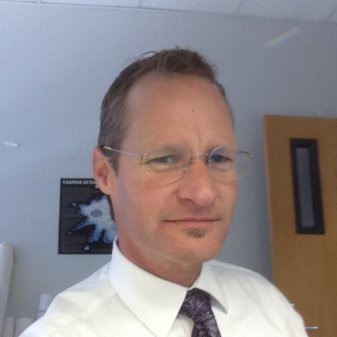
For more than 20 years, Dr. Christopher Wheeler has served as a professor and research scientist at Cedars-Sinai Medical Center in Los Angeles, California. One of the country’s top researchers and scientists in the area of brain tumor immunology, immunotherapy and neurological diseases, Dr. Wheeler was inspired by his mother’s early-onset AD to start a series of experiments that ultimately led to his technology that forms the basis for the science behind TNeuroPharma. Dr. Wheeler serves as the company’s Chief Scientific Officer, bringing his decades of scientific research in this complex area and his research into the role of T-cells in neurodegenerative diseases to TNeuroPharma. Dr. Wheeler has published more than 30 peer-reviewed articles, including being featured on multiple journal covers throughout the years, and has received numerous honors for his scientific research and findings. He has received grants from Leukemia and Lymphoma Society and NIH, several private foundations and donors (Milken, Mashouf, Jos. Drown, Uncle Kory, Precision Medicine). He received his BA in Biological Science at the University of California, Santa Barbara, his PhD. in Immunology at the University of California, Berkeley and his postdoc in Immunology from Stanford University.
Keerthy Sunder
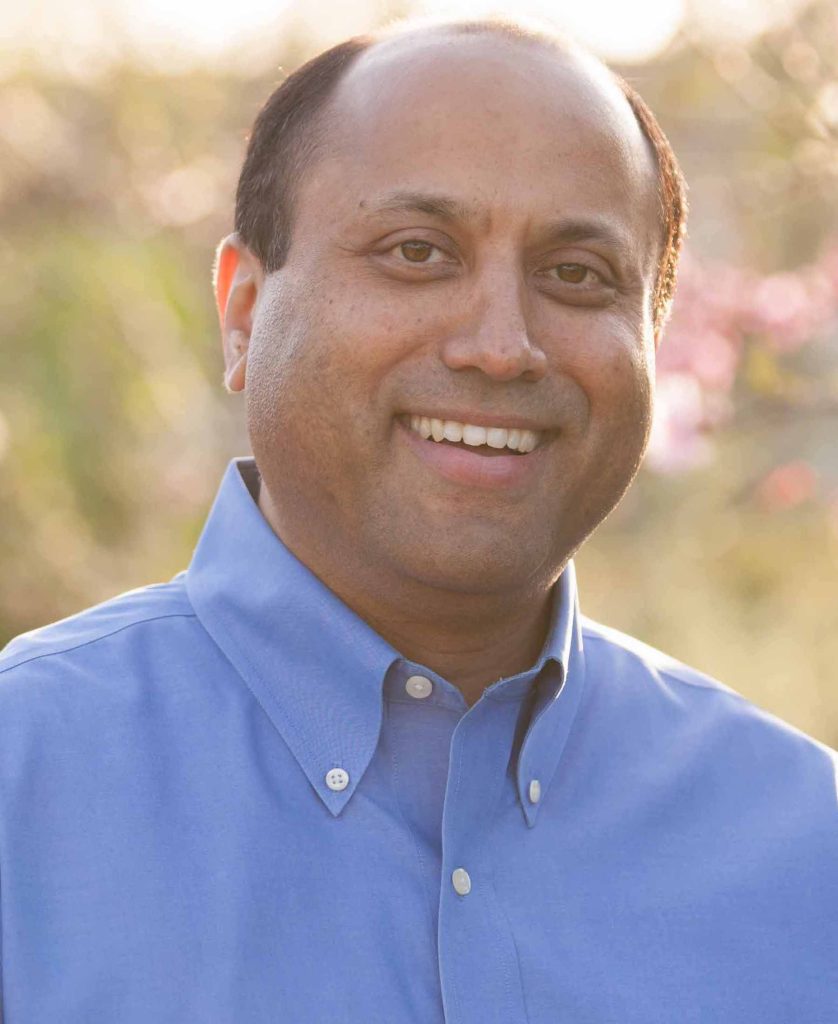
Keerthy Sunder, MD, is a leading double-board certified psychiatrist and the Chief Medical Officer of Karma Doctors & Associates, which has locations in Palm Desert and the Gramercy Park neighborhood of Los Angeles, California. He has over 20 years of experience and is committed to providing you with the most innovative and comprehensive treatment available. Dr. Sunder’s exciting approach to integrated psychiatry seeks to forge an empowering and collaborative patient experience rooted in advanced, scientifically proven modalities. He and the dedicated and caring team of practitioners at Karma Doctors & Associates work with you to customize a tailor-made plan that will specifically address your personalized goals and needs. They believe it’s time for a paradigm shift in psychiatry. Simply being “not depressed” or “not anxious” is no longer a high enough standard to shoot for. They can do better. Happiness, fulfillment, and thriving through everyday life should be the goal. Integrative psychiatry addresses the power of the mind and the chemistry of the brain to deliver powerful and optimized results.
